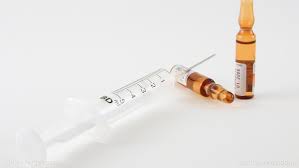
Breaking News
 Israeli Prime Minister, Netanyahu will meet with Trump on Wednesday and deliver instructions...
Israeli Prime Minister, Netanyahu will meet with Trump on Wednesday and deliver instructions...
 Elon Musk Offers To Cover Legal Bills Of Epstein Survivors Who Identify New Names
Elon Musk Offers To Cover Legal Bills Of Epstein Survivors Who Identify New Names
 Red Alert Emergency Broadcast! Tune In NOW As Alex Jones Analyzes The Insane Revelations...
Red Alert Emergency Broadcast! Tune In NOW As Alex Jones Analyzes The Insane Revelations...
 330 gallons of sulphuric acid was purchased for Epstein Island on the day the FBI opened...
330 gallons of sulphuric acid was purchased for Epstein Island on the day the FBI opened...
Top Tech News
 Drone-launching underwater drone hitches a ride on ship and sub hulls
Drone-launching underwater drone hitches a ride on ship and sub hulls
 Humanoid Robots Get "Brains" As Dual-Use Fears Mount
Humanoid Robots Get "Brains" As Dual-Use Fears Mount
 SpaceX Authorized to Increase High Speed Internet Download Speeds 5X Through 2026
SpaceX Authorized to Increase High Speed Internet Download Speeds 5X Through 2026
 Space AI is the Key to the Technological Singularity
Space AI is the Key to the Technological Singularity
 Velocitor X-1 eVTOL could be beating the traffic in just a year
Velocitor X-1 eVTOL could be beating the traffic in just a year
 Starlink smasher? China claims world's best high-powered microwave weapon
Starlink smasher? China claims world's best high-powered microwave weapon
 Wood scraps turn 'useless' desert sand into concrete
Wood scraps turn 'useless' desert sand into concrete
 Let's Do a Detailed Review of Zorin -- Is This Good for Ex-Windows Users?
Let's Do a Detailed Review of Zorin -- Is This Good for Ex-Windows Users?
 The World's First Sodium-Ion Battery EV Is A Winter Range Monster
The World's First Sodium-Ion Battery EV Is A Winter Range Monster
 China's CATL 5C Battery Breakthrough will Make Most Combustion Engine Vehicles OBSOLETE
China's CATL 5C Battery Breakthrough will Make Most Combustion Engine Vehicles OBSOLETE
Flu viral strain found to actually CURE liver cancer in groundbreaking research ...

(Natural News) You don't have be in favor of vaccines to appreciate the value of viral therapy in certain cases, and a new trial that could give hope to people with deadly liver cancer is one very promising example of this approach.
Scientists are getting ready to test a revolutionary treatment that will entail injecting patients who have advanced liver cancer with a laboratory-grown flu strain. This method obliterated tumors in mice and in a small trial group of humans in initial tests, and now it will be tested in a trial involving 500 people suffering from the illness.
While vaccines are not without their share of dangers, patients with advanced liver cancer have very few options. It spreads quickly throughout the body, and inoperable patients do not have much hope of surviving. Those who have been given less than a year to live are typically administered daily pills that slow the cancer's growth, but now there is new hope of treating it.
The people who have volunteered for the randomized trial are expected to have some flu symptoms after getting the shot, such as a sore throat, a cough and a runny nose. A small amount of the virus will be injected directly into their tumor. Once it gets inside the tumor's cancerous cells, it replicates itself until the cells get full enough to burst, allowing the flu-like infection to spread into the adjacent cells. The virus attacks and kills the cancerous cells without hurting the healthy tissue.
The researchers are also hoping that the virus will penetrate tumors that have already spread through the body.
"Game-changing" therapy
The head of the study, Royal Surrey County Hospital Oncologist Dr. Tony Dhillon, said that the trial was "potentially game-changing" given the fact that standard care for advanced liver cancer has not changed in more than a decade.
In the trial, half of the patients will be randomly selected to receive the injection as well as the tablets normally given to patients with the illness, while the other half will continue with just the pills. The results of this trial won't be published for another two or three years, but if everything goes according to plan, patients could start getting the treatment within six months of the trial's publication.



